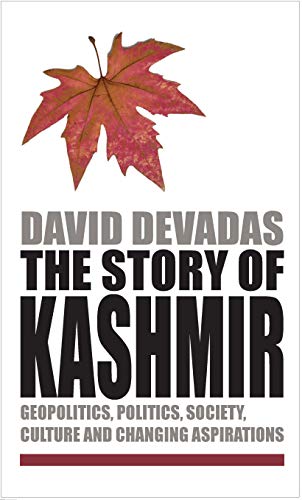Why I picked this book?
Kashmir is one region about which there are many myths, rumors, lies and propaganda floating around. Based on our ideology or support to a particular ideology we form our opinions and views about Kashmir and the people of Kashmir. And as they are based on preconceived notions that we hold so most of the times our understanding about Kashmir is flawed and biased. The only way to know more and to know truth about Kashmir is to read about it as much as you can from credible sources.
There are some books that I have already read about Kashmir and the lives of Kashmiri people, be it Pandits or Muslims. Most of these are memoirs or reporting about Kashmir by Kashmiri people and the books have their lived experience and their perspective of how things are in Kashmir, which my tilt towards one narrative or the other. This book is written by an outsider (not a resident of Kashmir) with an experience of around 30 years of journalism, so I picked it up to understand the story of Kashmir from an outsider’s perspective.
The book
The Story of Kashmir – Geopolitics, Politics, Society, Culture and Changing Aspirations as the name suggests is about the various aspects of Kashmir as mentioned in the title. In the center of all this are the people of Kashmir because its their lives which is impacted by the politics the leaders choose and sometimes it is people who force the politics to change. It is story of Kashmir starting from 1925, when Hari Singh was coronated as the king to as recent as 2016.
The author David Devadas provides a brief chronology of the rulers of Kashmir telling the readers how various rulers from different religion and ethnicity rules Kashmir over the years. From the last Kashmiri King Suheldev who fled in 1320, to the Mangol Dulchu Khan to Rinchin from Ladakh, to Mughals and then Afghan and Sikhs rulers and finally Dogra rulers who got it from Britishers in 1846. The book also gives us an overview of how the demography of Jammu and Kashmir changed over a period. Kashmir became a Muslim dominated while Jammu Hindu dominated with Dogras in majority there.
Hari Singh took charge in 1925 and though he made some significant changes in general administration, still an agitation of Kashmiri Muslims erupts in July 1931, which resulted in the killing of 21 Muslim protesters. The book elucidates how this agitation shaped the things in the near future, the rise of Sheikh Abdullah, formation of Muslim conference, which was later split into two and Sheikh Abdullah changed the name to National Conference.
From here like a fast-paced thriller the book takes you through the various historical milestones in the history and making of Kashmir as we know it today. The interesting part are the background details surrounding those events, which are interesting, amusing, informative and so much more. The relationship of Sheikh and Nehru, the formation of new countries in the sub-continent in 1947, Hari Singh choosing to be an independent state/country and later acceding to India on conditions, when Kashmir was invaded by Pathan tribesman with the help of Pakistani Army.
If you are a history buff and have interest in Kashmir, every page of the book will be a treat to read. What you would get to know though are the main events which left an impact in the political and social life of Kashmiris. The communal riots of 1967, the vicious entry of Jan Sangh and their efforts to conflagrate religious animosity a among Kashmiris.
There is a lot of details about the various terrorists’ organizations and how they came into being, the brutalities that they have unleashed on the people of Kashmir. The growing unrest among the people of Kashmir towards the government and how it turned into religious hatred towards the minority community. The fudged elections of 1987 and the immediate and long-term impact of that on the state of Jammu and Kashmir. The Killings and exodus of Pandits from the valley.
The Story of Kashmir – Geopolitics, Politics, Society, Culture and Changing Aspirations captures in detail the impact of terrorists and terrorism in the Kashmir valley. The role of Pakistan and its Army and ISI. The politics of control of Delhi and the frustration among the youth of valley due to lack of jobs and opportunities in the valley. The militarization of Kashmir, the methods used by Army and paramilitary forces to rein terrorism further alienated the people of Kashmir which changed the feelings from anti-governmental to anti-India.
About the Author
David Devadas is Distinguished Fellow, Institute of Social Sciences, New Delhi, India. He was formerly political editor at Business Standard. An expert on politics and geopolitics, his analysis, and predictions about Kashmir since 1988 have been consistently accurate. He has researched Kashmir as Senior Fellow at the Nehru Memorial Museum and Library, New Delhi, India, as Visiting Professor at Jamia Millia Islamia, New Delhi, India and as an Erasmus Mundus scholar at Humboldt-Universität zu Berlin, Germany.
Our Verdict
The Story of Kashmir – Geopolitics, Politics, Society, Culture and Changing Aspirations is a must read for everyone who need to know about Kashmir, its politics, and its people. This book provides an insight about various events, topics, and people with reference to Kashmir and not only they are informative but eye opening as well.
